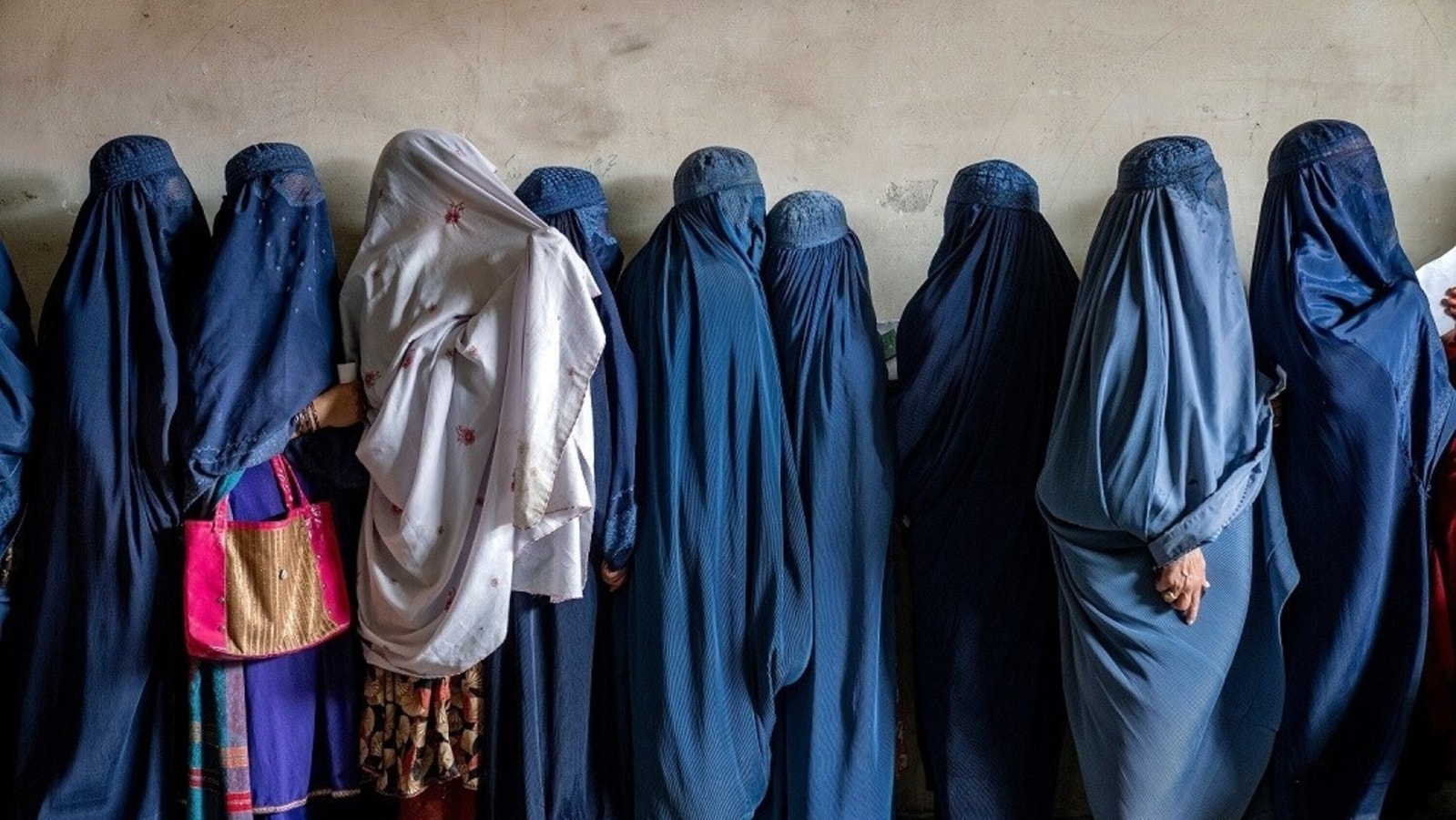
The Taliban government in Afghanistan has reportedly taken another step in tightening its control over women’s public lives by issuing a decree that bans women from praying aloud in each other’s presence. This latest restriction is an extension of previous prohibitions that have drastically curtailed the freedoms of Afghan women since the Taliban’s resurgence in power in 2021.
According to Virginia-based Amu TV, a prominent Afghan news outlet, the decree was announced by Mohammad Khalid Hanafi, the Taliban’s minister for the propagation of virtue and the prevention of vice. Hanafi stressed that women’s voices should not be audible during Islamic prayers if they are within earshot of other women. He cited religious principles, stating that a woman’s voice is regarded as “awrah,” meaning it should remain concealed from public hearing, even by other women.
“When women are not allowed to call Takbir or Azan (the Islamic call to prayer), they certainly cannot sing songs or enjoy music,” Hanafi said, underscoring the strict interpretation of Islamic law that the Taliban government is enforcing. His comments reveal the regime’s intent to suppress female voices in both religious and social contexts, emphasizing their view that a woman’s voice should not resonate in any public capacity.
This new restriction on public prayer is part of a broader set of policies that have systematically erased women from Afghan society. Experts fear that limiting women’s ability to speak audibly, even in a religious context, could set a precedent for further bans on female participation in any form of public communication. If such measures extend beyond religious settings, Afghan women may face severe limitations on their freedom of speech, rendering them effectively voiceless in society.
Local reports have suggested that the Taliban’s directive could have broad implications, especially for women who are allowed to work outside the home under strict guidelines. A midwife based in Herat told Amu TV that female healthcare workers are now discouraged from speaking in public spaces, even to male relatives or at checkpoints as they commute to work. This restriction could undermine the limited yet vital healthcare roles that some Afghan women occupy.
“They don’t even allow us to speak at checkpoints on our way to work, and in clinics, we are instructed not to discuss medical issues with male relatives,” shared the midwife, reflecting the challenges female healthcare workers face amid Afghanistan’s restrictive environment. As women in the medical field navigate an already delicate balance between cultural expectations and professional responsibilities, this new rule adds further strain and fear for those who risk speaking publicly, even if it is part of their job.
The Taliban’s control over women’s lives has steadily intensified since their takeover. In August, the Taliban enacted a mandate requiring women to fully cover their bodies and faces in public, marking a return to the same restrictive dress codes enforced during the group’s previous rule in the 1990s. Women are largely barred from employment, education beyond the sixth grade, and unaccompanied travel. The Taliban has also enacted a controversial ban on displaying images of living beings in public spaces, further highlighting the regime’s extreme stance on personal freedoms.
While it remains unclear how rigorously these latest restrictions will be enforced, the situation for Afghan women continues to deteriorate. Human rights groups have warned that such prohibitions contribute to a state of “gender apartheid,” a term used to describe the systemic discrimination and segregation women face under Taliban rule. These restrictions not only limit women’s ability to participate in society but also deepen the isolation that Afghan women endure, as they are forced into the background of their own country’s social, educational, and economic life.
As international advocacy groups push for greater recognition of women’s rights in Afghanistan, they face the reality that, under the Taliban’s hardline interpretation of Islamic law, Afghan women are unlikely to see relief anytime soon. The erosion of women’s rights in Afghanistan remains a critical issue on the world stage, prompting calls for intervention from global leaders who argue that the rights and freedoms of Afghan women should not be sacrificed to political ideologies or authoritarian rule.
